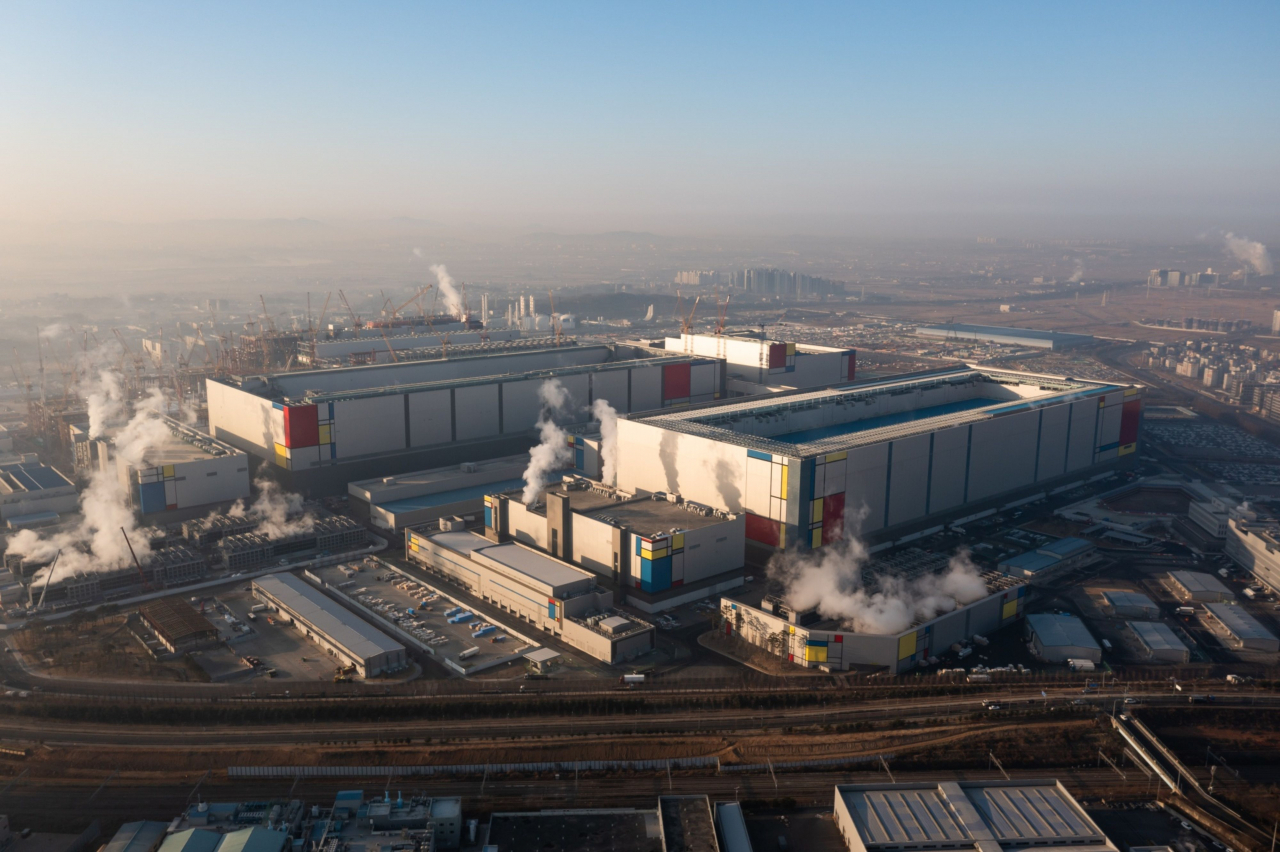[KH Explains] Why Samsung won't call production cut ‘a cut’
World’s No. 1 memory chipmaker seemingly takes cautious approach to reduce impact on market sentiment, keeps strategies under wraps
By Jo He-rimPublished : Feb. 8, 2023 - 17:23

While the global chip industry is struggling to make ends meet amid sluggish demand and price falls, Samsung Electronics, the world’s largest memory chipmaker, said it will keep spending at a similar level to last year.
Adding to that is that the tech giant has no plans to seek an "artificial cut" in production, bucking the trend of smaller rivals that have announced a reduction both in production and spending this year to manage their growing inventories.
Samsung’s comments made during a recent earnings conference call last month immediately prompted confusion among the media and industry watchers -- What’s the difference between a "natural reduction" and an "artificial reduction"? Is a natural reduction not a reduction? And how will the company cope with the current oversupply without adjusting production volume?
With Samsung refusing to elaborate further, experts here say the Korean chipmaker seems to be taking a more passive strategy this year, which some of them call a "natural" or "technical" reduction in production.
"What a production reduction means in the semiconductor industry is that the producer scales down the input of wafers to literally make fewer chips," said Park Jae-gun, an electronics engineering professor at Hanyang University in Seoul.
"But output can go down naturally when the company carries out actions such as line optimization and equipment layout adjustment, which ultimately slows down the speed of production," the professor explained, referring to how Samsung revealed its plan to adjust the equipment layout and optimize lines.
During the conference call, Samsung said, “To secure the best quality and for optimal operation of production lines, we will bolster maintenance and adjust equipment and continuously pursue smooth transition toward cutting-edge node for the future.”
The tech giant has also said it will also raise the portion for research and development in capital expenditure for this year. This could mean Samsung will be using the same number of wafers -- not reducing the total production volume -- but not putting the products up for immediate release or sale, according to an industry official who wished to be unnamed.
“It takes hundreds of steps to produce a semiconductor, and the number of these processes ought to increase for advanced products that require more sophisticated and up-to-date technologies,” the official said.
“So when a company decides to produce sophisticated products that take longer to produce, the product volume naturally decreases in a set period, even if the wafer input is the same,” the official added.
All these predictions are guesswork since Samsung refuses to clarify its plans. Its smaller rivals have clearly announced plans to cut both spending and output.
US memory maker Micron Technology has said it will reduce investment for new plants and equipment, and also slash output. South Korean chipmaker SK hynix also admitted it will scale back investment and output, while Kioxia Holdings, a NAND flash maker in Japan, is cutting output by 30 percent.
Samsung says it is aware of the public's attention on its decision on “artificial reduction,” but that it intends to keep quiet on its output management.
"Output management is a business decision, and it may vary by companies. Other companies may have made the decision (to cut down production) from their interpretation of the current situation. Samsung is looking further ahead at 2025 and 2026," an official from Samsung said, adding that stakeholders and the public should take note of how Samsung made the decision to keep up investment to gear up for the future.
"The decisions regarding output management should not be judged as to whether it is good or bad, but rather be understood as how the company sees the market's prospects."
Industry watchers also say Samsung, the leading player in the memory chip market, could be taking a cautious approach to minimize the impact on consumer sentiment.
At the same time, having a surplus of products in storage could also help the company to handle a sudden, unexpected surge in demand, as it takes about four months to supply chips for an order, an industry official explained under the condition of anonymity.
For example, a severe downturn in the chip industry was largely predicted in the wake of the COVID-19 pandemic in 2020 and 2021. But demand, on the contrary, peaked.
Industry officials underscore that reducing output cannot be the barometer in assessing a company’s competency and performance.
"The reduction in production only means the company is handling its storage to respond to demand. It doesn’t mean its products fall in competitiveness, nor lack the ability to produce," an industry official said.
Park of Hanyang University also said, "Instead of looking at how much a company cuts down on production, the focus should be on how the company continues to make investments to prepare for the future."







![[KH Explains] How should Korea adjust its trade defenses against Chinese EVs?](http://res.heraldm.com/phpwas/restmb_idxmake.php?idx=644&simg=/content/image/2024/04/15/20240415050562_0.jpg&u=20240415144419)











![[Today’s K-pop] Stray Kids to return soon: report](http://res.heraldm.com/phpwas/restmb_idxmake.php?idx=642&simg=/content/image/2024/04/16/20240416050713_0.jpg&u=)